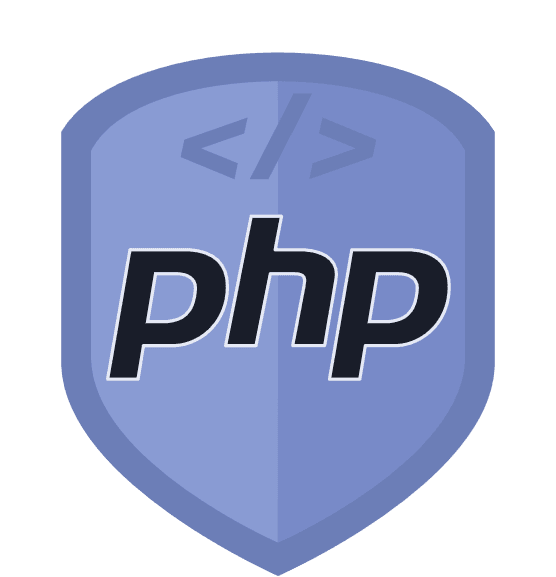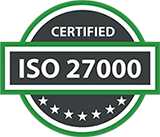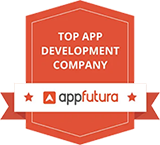Hire Joomla Developers
Custom themes & extensions
SEO & performance-optimized builds
Secure, scalable CMS solutions
Expert Joomla migration & upgrades
Fast setup with minimal downtime
On-Demand Joomla Experts, Ready to Scale Your Digital Presence
Joomla lets you build all kinds of websites, like simple blogs and big enterprise sites, with many add-ons and ways to do modifications. It is an award-winning open-source CMS used to develop everything from corporate websites to eCommerce portals & more.
Joomla is a stable and scalable CMS which ensures your website can grow and adapt alongside your business needs.
Its robust architecture and active community provide long-term reliability and the capacity to handle increasing traffic and complexity.
Expert Joomla Talent to Fit Your Project’s Specific Requirements
Custom Joomla Website Development
Scalable and feature-rich Joomla websites tailored to your business goals and user personas.
Benefits of Hiring Joomla Developers
Full frontend & backend Joomla expertise
Cost-effective Joomla web development
Timely delivery of custom Joomla sites
Effective troubleshooting for optimal performance
Flexible Joomla solutions for any business need
Clear and continuous communication
Tech Stack Expertise of Our Joomla Developers
At Dappinity, Joomla developers use PHP, MySQL, HTML5, CSS3, JavaScript (jQuery/Vue), along with deep familiarity with Joomla’s MVC architecture, Bootstrap framework, and integration tools like Akeeba Backup, RSForm, and VirtueMart.
 Joomla
Joomla
 HTML5
HTML5 CSS3
CSS3 JavaScript
JavaScript
 MySQL
MySQL
 PHP
PHP
Testimonials
The team delivered high-quality work that met our expectations in terms of design and functionality.
Productivity-focused companies trust Dappinity’s high-quality Joomla Developers to build fast, scale smart, and deliver with confidence.
We help you access skilled, reliable Joomla Developers who bring clarity, speed, and scalability to your projects — so you can focus on results, not resourcing.
Why Hire Joomla Developers from Dappinity?
Dappinity provides expert Joomla Developers offering scalable, innovative, and client-focused solutions while ensuring high quality and timely project delivery.
- Expert Developers
- Agile Project Management
- Cost Effective Solutions
- Superior Software Quality
- Optimized Operational Costs
- Time Zone Compatibility
Benefits of Dedicated Joomla Developers
The dedicated Joomla Developers team at Dappinity delivers innovative, scalable, and secure solutions, ensuring seamless collaboration and future ready applications.
- Tailored Software Solutions
- Cutting Edge Technology
- Agile Development Process
- Seamless Collaboration
- Future Ready Applications
- End to End Support
Hire Joomla Developers Fast with Our Simple Process

Tell us what you need - tech stack, experience, timelines.

We send you pre-screened developers matched to your needs.

You interview. You decide. Start in as little as 72 hours.

Easily scale up or down. We stay flexible as you grow.
1Engagement Models (Full-time, Part-time, Hourly, Project-Based)
Choosing the right engagement model when hiring Joomla developers is key to aligning with your project’s goals, timeline, and budget:
Full-time Developers:
Ideal for large-scale Joomla-based projects requiring continuous development, customization, and support. Full-time developers are best suited for building complex websites, e-commerce platforms, or enterprise-level content management systems (CMS) where ongoing maintenance and regular updates are essential.
Part-time Developers:
Suitable for projects that need periodic development or regular updates but don’t require full-time commitment. Part-time Joomla developers are perfect for adding new features to an existing website or providing maintenance and updates for smaller Joomla projects.
Hourly Developers:
A flexible option when you need a Joomla developer to tackle specific tasks such as bug fixes, performance optimization, or custom plugin development. Hourly engagements work well for one-off tasks or minor modifications to an existing Joomla website.
Project-Based Developers:
Best for well-defined Joomla projects with set objectives and deadlines. This model works well for building custom Joomla templates, developing specific plugins or extensions, or redesigning an existing Joomla website. The developer focuses on completing the project within a fixed timeline, ensuring clear deliverables.
2Development Methodologies: Best for Joomla Projects
Different methodologies can be used in Joomla development to ensure timely delivery and high-quality outcomes:
Agile:
Perfect for Joomla projects that require iterative development and frequent updates. Agile methodologies allow for flexible requirements and continuous feedback, making it suitable for dynamic projects such as e-commerce websites, social platforms, or custom web applications built on Joomla.
Scrum:
Scrum is ideal for large Joomla projects that require collaboration among multiple developers, designers, and stakeholders. By breaking down tasks into sprints, the team can focus on specific deliverables, such as custom plugin integration, template customization, or site optimization.
Waterfall:
For smaller, less complex Joomla projects with stable requirements (e.g., creating a basic business website or a blog), the Waterfall model provides a linear and structured approach. Each phase of the project is completed before moving on to the next, ensuring predictability and clarity.
3Matching Tech Stack Needs with Joomla Expertise
Joomla developers work with various technologies to meet your project’s tech stack requirements. Here’s how Joomla fits within modern tech ecosystems:
Frontend Technologies:
Core Stack: Joomla primarily uses PHP, HTML5, CSS3, and JavaScript to build dynamic websites.
Frontend Frameworks: Developers can integrate Bootstrap, jQuery, or Vue.js with Joomla to enhance the UI and add interactivity to the front-end of the website.
Joomla Template Overrides: Developers use Joomla's built-in templating system to customize the frontend and offer a unique design for your website.
Backend Integration:
PHP & MySQL: Joomla uses PHP as its primary language for backend development, with MySQL or MariaDB for managing databases.
Joomla Extensions: Developers often use a variety of pre-built extensions (modules, components, and plugins) to add features like e-commerce, SEO optimization, or social media integration without reinventing the wheel.
APIs & Web Services:
Joomla developers create RESTful APIs for web applications or mobile apps, enabling communication between Joomla websites and external platforms. This is crucial for integrating Joomla with other systems such as CRM, payment gateways, or third-party services.
Security:
Joomla developers adhere to best practices in securing websites, such as using the Joomla Security Strike Team (JSST) to patch vulnerabilities, ensuring secure user logins, encrypting sensitive data, and preventing SQL injection attacks. Regular updates and security patches are essential in maintaining a secure Joomla website.
4Ensuring Code Quality for Joomla Projects
Maintaining high code quality is essential for scalable, secure, and maintainable Joomla projects. Here’s how Joomla developers ensure top-notch code quality:
Code Reviews:
Code reviews ensure that developers follow best practices, clean code conventions, and Joomla coding standards. This process helps catch errors early, prevent security flaws, and maintain readability.
Automated Testing:
Unit Testing using PHP-based testing frameworks like PHPUnit ensures that each component of the Joomla website functions correctly.
Integration Testing ensures that the various modules, plugins, and components of a Joomla site work well together, such as when integrating a custom extension with Joomla’s core system.
End-to-End Testing simulates real-world user interactions, ensuring the overall application functions smoothly.
Linting & Code Formatting:
Developers use tools like PHP_CodeSniffer to check for any coding issues and ensure that the code adheres to established coding standards, reducing errors and improving readability.
Continuous Integration/Continuous Deployment (CI/CD):
Automating testing and deployment with CI/CD tools like Jenkins or GitLab CI ensures that every update or change is thoroughly tested before being deployed to the live site, preventing downtime and bugs in production.
5Security & IP Protection for Joomla Developers
Security and intellectual property (IP) protection are essential in Joomla development to safeguard your project and assets:
NDAs & Legal Agreements:
It’s important to have Joomla developers sign Non-Disclosure Agreements (NDAs) to ensure the confidentiality of your proprietary information and avoid unauthorized use of your ideas or designs.
Source Code Management:
Joomla developers store the source code in secure, private repositories on platforms like GitHub, GitLab, or Bitbucket. This protects the codebase and ensures proper version control. Enabling two-factor authentication (2FA) adds an extra layer of security.
Access Control:
Role-based access control (RBAC) ensures that only authorized personnel have access to critical parts of the Joomla project, such as sensitive code or customer data. After the project completion, access should be revoked to avoid unauthorized use.
Intellectual Property Ownership:
Ensure the contract clearly defines the ownership of all code, assets, and intellectual property developed for the Joomla site. A Work-for-Hire clause should also be included, transferring all rights to your business.
6Freelancer vs Dedicated Joomla Developer: What’s Better for Your Project?
The choice between freelancers and dedicated Joomla developers depends on your project’s scale, budget, and long-term maintenance needs:
Freelancers:
Freelancers are well-suited for smaller, one-off Joomla tasks such as creating a custom plugin, theme customization, or fixing bugs. They offer flexibility and cost-effectiveness for short-term engagements.
For larger Joomla projects or ongoing website maintenance, dedicated developers provide more stability, reliability, and in-depth involvement. They are better suited for complex websites, enterprise applications, and long-term collaboration.
Engage Dappinity for Your Joomla Development
From full-scale Joomla websites to complex module development and CMS migrations, Dappinity offers deep expertise and tailored solutions. Work with Joomla developers who understand performance, security, and user experience — and are ready to bring your vision to life.
600+
Project completed12+
Years Experience100%
Positive reviews92%
Customer RetentionTransparency
Strict Privacy Assurance with NDA
Talented Team of Developers
12 Months Free Support
Smooth Collaboration & Reporting
On time Delivery, No Surprises
Efficient & Adaptive Workflow
FAQs About Hiring Joomla Developers
At Dappinity, Joomla experts build scalable, secure, and fully customized websites that meet your business goals and adapt to evolving tech needs.
Yes, Our Developers handle end-to-end CMS migrations from platforms like WordPress, Drupal, and custom systems to Joomla seamlessly.
Absolutely. We build and customize Joomla extensions to enhance your website's features and UX.
Yes, all Joomla templates we develop are fully responsive and optimized for mobile-first experiences.
Yes, we implement SEO best practices including meta tag control, structured data, sitemap configuration, and speed optimization.
Typically, you can onboard a Joomla developer within 24–48 hours, depending on your project needs.
Yes, you get complete ownership of all source code, assets, and intellectual property created during development.













